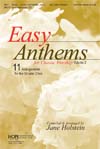- |
User Links
Great is the Lord Our God
Hymn Information
- First Line
- Great is the LORD our God
- Text Source
- St. 1-2 Psalter Hymnal, 1987; St. 3-5 Psalter, 1887, rev., 1987
- Tune Name
- DIADEMATA
- Composer
- George J. Elvey (1868)
- Topic
- Biblical Names and Places: Zion · The Church
Copyright Information
- Text Copyright
- © 1987 Faith Alive Christian Resources
- Tune Copyright
- Public Domain
- Reprint/Projection Information
- Words: Permitted with a license from CCLI.com or from OneLicense.net. If you do not own one of these licenses, please contact the copyright holder for permission.
- Music: The Music is in the Public Domain; you do not need permission to project or reprint the Music.
Scripture References
Thematically related:
- st. 1 =
- st. 2 =
- st. 3 =
- st. 4 =
- st. 5 =
Further Reflections on Scripture References
Traditionally associated with the Levitical "Sons of Korah," this celebration song matches the exuberant faith of Psalm 46 (see also 76, 84, 87, 122, 125, and 137). In the post-exilic liturgy of the temple, this psalm was sung at the time of the morning sacrifice on the second day of the week. Because the LORD
Almighty is present in Zion, that hill's rather modest height is likened to Mount Zaphon (North Mountain), the Mount Olympus where the Canaanite gods supposedly sat in counsel. Jerusalem, unlike the imperial capitals of Egypt and Mesopotamia, was no grand city. But her walls and citadels are impregnable because "the Great King" lives there. And in Jerusalem's temple "we meditate on [God's] unfailing love" (v. 9). In this psalm we proclaim the greatness of the LORD and the glory of his city (st. 1), extol God's triumphs over Zion's enemies and his people's sense of security (st. 2), and praise the LORD's love, grace, and righteousness (st. 3). Zion rejoices in its King and in the ramparts God maintains (st. 4). The psalmist exhorts the people to let succeeding generations know Zion will not fail-for God, the unfailing guide, is present there [by his Word and Spirit] (st. 5). Emily R. Brink (PHH 158) versified stanza 1, and Bert Witvoet (PHH 4) versified stanza 2; stanzas 3 through 5 (with some alterations) are from The Book of Psalms (1871), a text-only psalter that was later published with music in 1887.
Psalter Hymnal Handbook
Great is the Lord Our God
Additional Prayers
you have made us fellow citizens with the saints in the city of your eternal light.
In the times of upheaval or when the foundations shake,
teach us to wait in silence for your steadfast and transforming love,
made known to us in Jesus Christ our Lord. Amen.
Great is the Lord Our God
Tune Information
- Name
- DIADEMATA
- Key
- D Major
- Meter
- 6.6.8.6 D


 My Starred Hymns
My Starred Hymns






